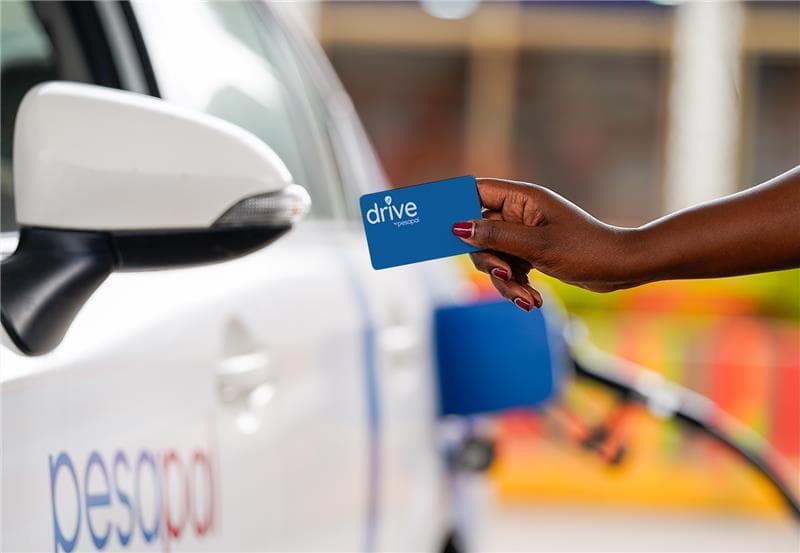We're loading the full news article for you. This includes the article content, images, author information, and related articles.
The new 'Drive' platform aims to tackle rampant fuel theft and operational inefficiencies for East African businesses by digitizing transactions and integrating with over 200 fuel stations across the region.

Financial technology firm Pesapal has launched a new digital platform, 'Drive', designed to combat widespread fuel theft and transaction fraud plaguing businesses across East Africa. The system, which went live on Thursday, 30th October 2025, provides companies with real-time oversight and control over their fleet's fuel expenditure, a significant operational cost for logistics and transport firms in the region.
Fuel expenses are a critical concern for Kenyan businesses. According to a 2025 report on the country's logistics market, high and fluctuating fuel prices, coupled with security risks like theft, are major challenges impacting operational costs. The problem is systemic, with reports indicating significant losses annually. For instance, disclosures to the National Assembly's Committee on Energy in January 2024 revealed that Kenya Pipeline Company (KPC) loses approximately 3.2 million litres of fuel, valued at around KSh 600 million, to theft along its network each year. While this pertains to the national pipeline, it highlights the scale of fuel-related crime that also affects private enterprises at the retail level.
Pesapal’s Drive platform aims to replace the traditional, fraud-prone system of paper logbooks and verbal approvals for refueling. “Over time, businesses have had to choose between trusting blindly or micromanaging manually when it comes to managing their fleet,” said Agosta Liko, CEO of Pesapal, in a statement released on Thursday. “Drive removes that trade-off. As a business owner, you can now see exactly where your fuel money goes, stop losses before they happen and finally run your fleet the way it should be run.”
The platform enables fleet managers to set customized fueling rules, such as spending limits per vehicle, daily caps, and specific station approvals. When a registered vehicle arrives at a partner fuel station, the system automatically verifies its identity, checks the predefined limits, and logs the transaction instantly without the need for cash, physical cards, or manual receipts.
A key feature of the system is its direct integration with Pesapal’s Forecourt Management Solution (FMS), which the company states is already operational in over 200 fuel stations across Kenya, Uganda, Tanzania, Rwanda, and Zambia. This integration creates a closed-loop digital ecosystem from the fleet manager’s dashboard to the fuel pump, aiming to eliminate opportunities for fraud, such as siphoning or unauthorized purchases. The precise number of active FMS stations and their distribution across the listed countries requires further independent verification. (FURTHER INVESTIGATION REQUIRED).
The reliance on manual systems has long been a vulnerability. A 2020 investigation by the Nairobi Law Monthly detailed how fuel retailers suffered significant losses from under-deliveries and theft by transporters, with delivery losses reaching as high as 4.7%, far exceeding the regulator-capped acceptable loss of 0.5% for petrol. Drive is designed to mitigate such risks by providing a verifiable digital record of every transaction.
While Kenya's logistics sector is advancing, many firms still grapple with inefficiencies from outdated manual systems, contributing to high operational costs that can represent nearly 29% of a product's value, according to a 2023 analysis by the Kenya Institute for Public Policy Research and Analysis (KIPPRA). Pesapal's solution enters a competitive market for fleet management in Kenya, with established players like Utrack Africa, SolFleet Solutions, and Africa Fleet Management Solutions offering services that include GPS tracking and fuel monitoring. However, Pesapal aims to differentiate Drive through its deep integration with its existing payment and point-of-sale network, which is widely used across the region.
The platform is tailored for the East African market, where mobile money is a dominant payment method. By digitizing the entire fuel payment process, from authorization to reconciliation, Pesapal seeks to provide a secure and efficient alternative that reduces administrative workload and prevents the financial leakages that quietly erode business profits.
Keep the conversation in one place—threads here stay linked to the story and in the forums.
Sign in to start a discussion
Start a conversation about this story and keep it linked here.
Other hot threads
E-sports and Gaming Community in Kenya
Active 9 months ago
The Role of Technology in Modern Agriculture (AgriTech)
Active 9 months ago
Popular Recreational Activities Across Counties
Active 9 months ago
Investing in Youth Sports Development Programs
Active 9 months ago